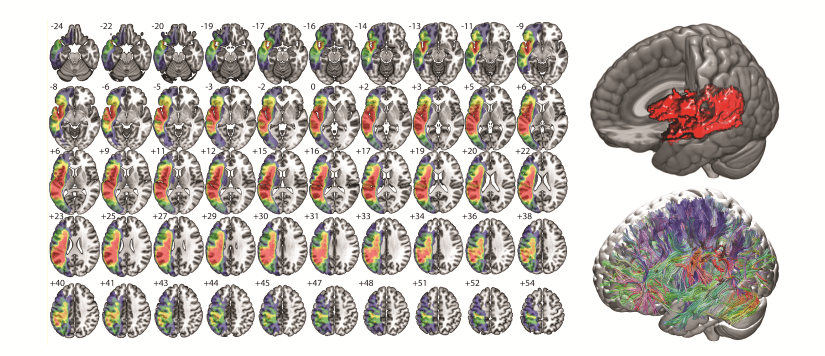July 24, 2017 | Erin Bluvas, bluvase@sc.edu
Roozbeh Behroozmand, an assistant professor in the Arnold School’s communication sciences and disorders department, has received a $700K grant from the National Institute on Deafness and Other Communication Disorders (NIDCD) to explore how brain damage from stroke impacts speech. With this five-year project, Behroozmand will utilize state-of-the-art methodologies to combine neuroimaging data with behavioral biomarkers to find out how damage to sensory and motor brain networks and altered connectivity between these regions can cause deficits in comprehension, production and motor control of speech in stroke survivors with aphasia.
“While recovery can be promoted with speech treatment, improvement remains modest and typically requires a large amount of therapy which contributes to rising health care costs,” says Behroozmand. “A major shortcoming of currently existing treatment approaches is that they have focused on enhancing the outcome measures associated with speech production, without taking into account that targeting deficits in sensory feedback processing of speech may significantly increase treatment efficiency and effectiveness.”
This project will be supported by a team of mentoring faculty at multiple institutions, including Julius Fridriksson and Chris Rorden at USC, Leo Bonilha at the Medical University of South Carolina, and Greg Hickok at University of California Irvine. The project will be conducted in close collaboration with USC’s Center for the Study of Aphasia Recovery (C-STAR), which is directed by Behroozmand’s primary mentor, Fridriksson.
Behroozmand’s research will look at the front-end of aphasia treatment at the brain network level. By looking at the structural brain scans obtained using magnetic resonance imaging (MRI), Behroozmand will identify patterns of brain lesion within the auditory-motor networks of the brain that predict impaired sensorimotor processing of speech in aphasia.
“This research will show that stroke damage to the auditory-motor network impairs speakers’ ability to detect and/or correct for speech errors related to auditory feedback problems,” says Behroozmand. “By identifying patterns of lesion, we will be able to predict the degree of speech impairment by looking at the biomarkers that are present. This will improve diagnosis and targeted treatment of speech disorders that are caused by aphasia.”
A leading cause of disability in the United States, stroke can frequently lead to aphasia, a communication disorder resulting from stroke or injury to the brain that impacts patients’ ability to speak, listen, read, and/or write but does not affect intelligence. This condition is the most common type of post-stroke speech impairment that has profound consequences for the patients and results in diminished ability to comprehend, produce and control speech. Aphasia often limits participation in professional, social and family settings. The ability to effectively communicate also has a major impact on engaging in meaningful interactions about health and can affect access to health care.
Originally a biomedical engineer, Behroozmand has spent the past decade researching the neural mechanisms of speech production and motor control. In his Speech Neuroscience Lab, Behroozmand uses speech signal processing, human brain electrophysiology and neuroimaging to gain knowledge that can be leveraged to develop novel diagnosis and clinical treatment methods to enhance speech communication and improve the quality of life in patients with speech disorders, such as aphasia and Parkinson’s disease.
Related:
